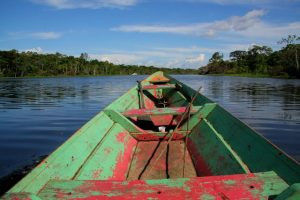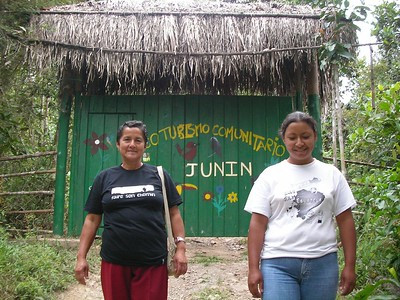Are you passionate about travel and eager to contribute to Vietnam’s rich cultural heritage and stunning natural landscapes? Sustainable Tourism Jobs offer a unique opportunity to do just that. SIXT.VN is dedicated to connecting travelers with meaningful experiences while promoting responsible and ethical tourism practices. Discover how you can turn your love for exploration into a rewarding career, supporting local communities and preserving Vietnam’s beauty for future generations.
1. What Exactly Are Sustainable Tourism Jobs?
Sustainable tourism jobs involve roles that focus on minimizing the negative impacts of tourism while maximizing its positive contributions to the environment, local communities, and the economy. These jobs prioritize conservation, cultural preservation, and economic benefits for local residents.
Essentially, it’s about ensuring that tourism doesn’t harm the places people visit and that it benefits the people who live there. According to the UN Environment Programme, sustainable tourism accounts for as much as 9% of jobs globally.
1.1. What Distinguishes Sustainable Tourism from Traditional Tourism?
Traditional tourism often prioritizes profit and convenience, potentially leading to environmental damage and cultural disruption. In contrast, sustainable tourism seeks to:
- Protect Natural Resources: Conserving biodiversity, reducing pollution, and promoting responsible resource management.
- Respect Local Cultures: Supporting and preserving local traditions, heritage, and ways of life.
- Benefit Local Economies: Ensuring that tourism revenue stays within the community, supporting local businesses, and creating employment opportunities.
- Minimize Environmental Impact: Reducing carbon emissions, managing waste responsibly, and promoting eco-friendly practices.
- Educate and Engage Travelers: Raising awareness about sustainable practices and encouraging responsible behavior.
 Sustainable tourism aims to protect natural resources and support local communities in Vietnam
Sustainable tourism aims to protect natural resources and support local communities in Vietnam
1.2. What Impact Do Sustainable Tourism Jobs Have?
Sustainable tourism jobs directly contribute to:
- Environmental Conservation: Protecting natural habitats and wildlife.
- Community Empowerment: Providing economic opportunities and supporting local livelihoods.
- Cultural Preservation: Safeguarding cultural heritage and traditions.
- Economic Growth: Fostering sustainable economic development in local communities.
- Responsible Travel: Promoting ethical and environmentally conscious tourism practices.
2. What Types of Sustainable Tourism Jobs Can You Find in Vietnam?
Vietnam’s diverse landscapes and rich cultural heritage offer a wide array of sustainable tourism job opportunities. SIXT.VN actively promotes and supports initiatives that create these types of roles.
2.1. Tour Guides Focused on Ecotourism
Ecotourism guides lead visitors through natural areas, providing education on local flora, fauna, and ecosystems. They ensure tours are conducted responsibly, minimizing environmental impact and promoting conservation.
- Responsibilities: Leading guided tours, providing educational information, ensuring visitor safety, and promoting responsible tourism practices.
- Skills Required: Knowledge of local ecosystems, strong communication skills, first aid certification, and a passion for conservation.
2.2. Community Liaison Officers
These officers work directly with local communities to ensure they benefit from tourism activities. They facilitate communication, promote cultural exchange, and help develop sustainable tourism initiatives.
- Responsibilities: Building relationships with local communities, coordinating community-based tourism projects, and ensuring fair distribution of tourism revenue.
- Skills Required: Interpersonal skills, cultural sensitivity, project management abilities, and a background in community development.
2.3. Sustainability Managers in Hotels and Resorts
Sustainability managers implement eco-friendly practices in hotels and resorts, such as energy conservation, waste reduction, and responsible sourcing.
- Responsibilities: Developing and implementing sustainability policies, monitoring environmental performance, and training staff on eco-friendly practices.
- Skills Required: Knowledge of environmental management systems, analytical skills, project management experience, and a passion for sustainability.
2.4. Protected Area Management Staff
These professionals work in national parks and protected areas, focusing on conservation, visitor management, and sustainable tourism development.
- Responsibilities: Managing protected areas, conducting conservation research, enforcing regulations, and developing sustainable tourism plans.
- Skills Required: Knowledge of conservation biology, park management experience, strong communication skills, and a commitment to protecting natural resources.
2.5. Responsible Travel Consultants
Responsible travel consultants advise travelers on how to minimize their environmental impact and support local communities while exploring Vietnam.
- Responsibilities: Planning eco-friendly itineraries, recommending sustainable accommodations and activities, and educating travelers on responsible tourism practices.
- Skills Required: Knowledge of sustainable tourism principles, excellent communication skills, travel planning experience, and a passion for responsible travel.
2.6. Tourism Product Developers
These professionals design and develop sustainable tourism products and experiences that benefit local communities and protect the environment.
- Responsibilities: Creating innovative tourism products, working with local communities to develop authentic experiences, and ensuring products meet sustainability standards.
- Skills Required: Creativity, project management abilities, knowledge of sustainable tourism principles, and strong communication skills.
 A tour guide explaining local flora and fauna to tourists in Vietnam
A tour guide explaining local flora and fauna to tourists in Vietnam
3. What Skills and Qualifications Are Needed for Sustainable Tourism Jobs?
To excel in sustainable tourism jobs, you’ll need a combination of technical skills, soft skills, and relevant qualifications. SIXT.VN values candidates who demonstrate a strong commitment to sustainability and responsible travel.
3.1. Educational Background
- Bachelor’s Degree: A degree in tourism management, environmental science, sustainable development, or a related field is often required.
- Relevant Certifications: Certifications in sustainability management, ecotourism, or environmental education can enhance your credentials.
3.2. Essential Skills
- Knowledge of Sustainability Principles: Understanding of environmental conservation, cultural preservation, and community development.
- Communication Skills: Ability to communicate effectively with diverse audiences, including tourists, local communities, and stakeholders.
- Interpersonal Skills: Ability to build relationships, collaborate with others, and work effectively in a team.
- Problem-Solving Skills: Ability to identify and address challenges related to sustainable tourism practices.
- Project Management Skills: Ability to plan, organize, and execute sustainable tourism projects.
- Language Skills: Proficiency in English and Vietnamese is highly valued, as well as other languages spoken by international tourists.
- IT Skills: Competency in using software for data analysis, reporting, and communication.
3.3. Experience
- Internships: Relevant internships in tourism, conservation, or community development can provide valuable experience.
- Volunteer Work: Volunteering with organizations focused on sustainable tourism or environmental conservation can demonstrate your commitment.
- Work Experience: Prior experience in tourism, hospitality, or a related field can be beneficial.
4. Where Can You Find Sustainable Tourism Jobs in Vietnam?
Sustainable tourism jobs can be found across various sectors in Vietnam, from eco-lodges to national parks. SIXT.VN partners with many organizations offering these opportunities.
4.1. Eco-Lodges and Resorts
Eco-lodges and resorts are committed to sustainable practices and often hire staff with expertise in environmental management and community engagement.
- Example: The Datai Langkawi in Malaysia is renowned for its commitment to sustainability and conservation.
4.2. Tour Operators
Tour operators specializing in ecotourism and responsible travel offer various job opportunities, including tour guides, travel consultants, and product developers.
- Example: Intrepid Travel is a global tour operator committed to responsible and sustainable travel.
4.3. National Parks and Protected Areas
National parks and protected areas employ staff to manage conservation efforts, visitor services, and sustainable tourism initiatives.
- Example: Cat Tien National Park in Vietnam is a biodiversity hotspot offering opportunities for conservation and tourism professionals.
4.4. NGOs and Non-Profit Organizations
NGOs and non-profit organizations often work on sustainable tourism projects, providing opportunities for community development, environmental conservation, and research.
- Example: WWF (World Wildlife Fund) is a global conservation organization working on sustainable tourism initiatives.
4.5. Government Agencies
Government agencies responsible for tourism and environmental management may offer jobs related to sustainable tourism policy, planning, and regulation.
- Example: The Vietnam National Administration of Tourism plays a key role in promoting sustainable tourism development in the country.
5. How Can SIXT.VN Help You Find Sustainable Tourism Jobs?
SIXT.VN is committed to promoting sustainable tourism in Vietnam and connecting travelers with responsible and ethical experiences. We offer a range of services that support sustainable tourism initiatives and create job opportunities in the sector.
5.1. Promoting Sustainable Tourism Businesses
We partner with eco-lodges, tour operators, and other businesses that prioritize sustainability, helping them reach a wider audience of travelers.
5.2. Educating Travelers
We provide information and resources on sustainable tourism practices, encouraging travelers to make responsible choices and support local communities.
5.3. Supporting Community-Based Tourism
We promote community-based tourism initiatives that empower local communities and provide authentic cultural experiences for travelers.
5.4. Offering Sustainable Tour Packages
We curate tour packages that focus on environmental conservation, cultural preservation, and community benefits, ensuring a positive impact on the destinations we serve.
5.5. Connecting Job Seekers with Employers
We work with sustainable tourism businesses to identify job opportunities and connect job seekers with employers who share their commitment to responsible travel.
6. What are the Benefits of Working in Sustainable Tourism?
Working in sustainable tourism is more than just a job; it’s a way to contribute to a better world. The benefits are manifold and deeply rewarding.
6.1. Making a Positive Impact
You’re actively contributing to the preservation of natural and cultural heritage. Your work directly supports local communities and their economies, fostering sustainable development.
6.2. Personal Fulfillment
Many find a deep sense of purpose in promoting ethical and responsible travel. You’re helping to create meaningful experiences for travelers while protecting the planet.
6.3. Career Growth
The sustainable tourism sector is growing rapidly, offering diverse career paths and opportunities for advancement. You can specialize in areas like eco-tourism, community development, or environmental management.
6.4. Unique Experiences
You’ll have the chance to work in beautiful and culturally rich environments. This can involve travel, outdoor activities, and interactions with diverse communities.
6.5. Skill Development
You’ll develop a broad range of skills, including communication, project management, and environmental awareness. These skills are highly valuable and transferable across various industries.
6.6. Contributing to Global Goals
Your work aligns with the United Nations’ Sustainable Development Goals (SDGs), particularly those related to environmental protection and poverty reduction.
6.7. Being Part of a Community
You’ll join a network of passionate individuals dedicated to making a difference. This community offers support, collaboration, and opportunities for learning and growth.
 Staff at an eco-lodge discussing sustainable practices
Staff at an eco-lodge discussing sustainable practices
7. What Are the Challenges and How to Overcome Them?
While sustainable tourism offers numerous rewards, it also presents challenges that require innovative solutions and a commitment to overcoming them.
7.1. Greenwashing
- Challenge: Some companies falsely market themselves as sustainable without making genuine efforts.
- Solution: Conduct thorough research, look for certifications from reputable organizations like the Global Sustainable Tourism Council (GSTC), and ask detailed questions about their sustainability practices.
7.2. Balancing Conservation and Economic Development
- Challenge: Ensuring that tourism benefits local communities without compromising environmental protection.
- Solution: Implement community-based tourism models, involve local residents in decision-making, and prioritize conservation efforts that generate long-term economic benefits.
7.3. Managing Visitor Impact
- Challenge: Excessive tourism can lead to environmental degradation, cultural disruption, and resource depletion.
- Solution: Implement visitor management strategies, promote off-season travel, and encourage responsible behavior through education and awareness campaigns.
7.4. Lack of Awareness
- Challenge: Many travelers are unaware of sustainable tourism practices and their importance.
- Solution: Increase awareness through educational campaigns, social media, and partnerships with travel influencers and media outlets.
7.5. Regulatory Frameworks
- Challenge: Inadequate regulations and enforcement can hinder sustainable tourism development.
- Solution: Advocate for stronger regulations, support government initiatives that promote sustainability, and collaborate with stakeholders to develop effective enforcement mechanisms.
7.6. Economic Viability
- Challenge: Sustainable tourism businesses may face higher costs and lower profit margins compared to conventional tourism models.
- Solution: Highlight the long-term benefits of sustainable tourism, attract environmentally conscious travelers, and seek funding and support from organizations that prioritize sustainability.
7.7. Cultural Sensitivity
- Challenge: Tourism can sometimes disrupt local cultures and traditions.
- Solution: Promote cultural exchange programs, respect local customs, and involve community members in tourism activities to ensure authenticity and cultural preservation.
8. What Is the Future of Sustainable Tourism in Vietnam?
Sustainable tourism is poised for significant growth in Vietnam, driven by increasing awareness, government support, and a growing demand for responsible travel experiences.
8.1. Government Initiatives
The Vietnamese government is increasingly recognizing the importance of sustainable tourism and implementing policies to support its development.
- Example: The National Green Growth Strategy aims to promote sustainable economic development, including green tourism initiatives.
8.2. Technological Advancements
Technology is playing a crucial role in promoting sustainable tourism, with innovations such as eco-friendly transportation, energy-efficient accommodations, and digital platforms that connect travelers with sustainable businesses.
8.3. Community Empowerment
Community-based tourism is expected to expand, providing local communities with greater control over tourism development and ensuring that they benefit directly from tourism revenue.
8.4. Increased Awareness
Travelers are becoming more aware of the environmental and social impacts of their choices and are increasingly seeking sustainable travel options.
8.5. Public-Private Partnerships
Collaboration between government agencies, private sector businesses, and NGOs is essential for driving sustainable tourism development and achieving long-term success.
8.6. Sustainable Infrastructure
Investments in sustainable infrastructure, such as renewable energy, waste management systems, and eco-friendly transportation, are crucial for supporting sustainable tourism growth.
8.7. Certification and Standards
The adoption of certification programs and sustainability standards will help ensure that tourism businesses adhere to best practices and provide travelers with reliable information about their sustainability performance.
 A Vietnamese family running a community-based tourism initiative
A Vietnamese family running a community-based tourism initiative
9. Success Stories: Sustainable Tourism in Action in Vietnam
Several initiatives in Vietnam demonstrate the positive impact of sustainable tourism, serving as inspiration for future projects.
9.1. Sapa Community-Based Tourism
The Sapa region in northern Vietnam has successfully developed community-based tourism initiatives that empower local ethnic minority communities and provide authentic cultural experiences for travelers.
- Impact: Increased income for local families, preservation of cultural traditions, and reduced environmental impact through responsible tourism practices.
9.2. Con Dao Islands Marine Conservation
The Con Dao Islands are a protected marine area that has implemented sustainable tourism practices to protect its coral reefs and marine life.
- Impact: Conservation of biodiversity, increased awareness among travelers, and support for local conservation efforts through tourism revenue.
9.3. Cuc Phuong National Park Ecotourism
Cuc Phuong National Park offers ecotourism activities that promote conservation and provide economic benefits for local communities.
- Impact: Conservation of endangered species, increased awareness about biodiversity, and support for local livelihoods through tourism-related jobs.
9.4. Hoi An Ancient Town Sustainable Tourism
Hoi An Ancient Town has implemented sustainable tourism practices to preserve its cultural heritage and manage visitor impact.
- Impact: Preservation of historical architecture, promotion of local arts and crafts, and reduced environmental impact through responsible tourism practices.
9.5. Phong Nha-Ke Bang National Park Adventure Tourism
Phong Nha-Ke Bang National Park offers adventure tourism activities that are designed to minimize environmental impact and support local communities.
- Impact: Conservation of natural resources, promotion of local culture, and increased economic opportunities for local residents.
10. FAQ About Sustainable Tourism Jobs in Vietnam
10.1. What qualifications do I need to work in sustainable tourism?
A bachelor’s degree in tourism management, environmental science, or a related field is often required, along with relevant certifications and experience.
10.2. How can I find sustainable tourism jobs in Vietnam?
You can find job opportunities on websites like SIXT.VN, as well as through eco-lodges, tour operators, national parks, NGOs, and government agencies.
10.3. What skills are important for sustainable tourism jobs?
Key skills include knowledge of sustainability principles, communication skills, interpersonal skills, problem-solving skills, and project management abilities.
10.4. What is the difference between ecotourism and sustainable tourism?
Ecotourism is a subset of sustainable tourism that focuses specifically on responsible travel to natural areas, while sustainable tourism encompasses a broader range of environmental, social, and economic considerations.
10.5. How can I make a positive impact in sustainable tourism?
You can make a positive impact by promoting responsible travel practices, supporting local communities, and contributing to environmental conservation efforts.
10.6. What are the challenges of working in sustainable tourism?
Challenges include greenwashing, balancing conservation and economic development, managing visitor impact, and lack of awareness.
10.7. How is technology helping sustainable tourism?
Technology is enabling eco-friendly transportation, energy-efficient accommodations, and digital platforms that connect travelers with sustainable businesses.
10.8. What is the role of local communities in sustainable tourism?
Local communities play a crucial role in sustainable tourism by participating in decision-making, benefiting from tourism revenue, and preserving their cultural heritage.
10.9. How can I ensure that a tourism business is truly sustainable?
Look for certifications from reputable organizations, ask detailed questions about their sustainability practices, and research their reputation online.
10.10. What is the future of sustainable tourism in Vietnam?
Sustainable tourism is poised for significant growth in Vietnam, driven by increasing awareness, government support, and a growing demand for responsible travel experiences.
Ready to explore the world of sustainable tourism jobs in Vietnam? SIXT.VN is here to help you find the perfect opportunity to combine your passion for travel with your commitment to sustainability.
Visit SIXT.VN today to discover sustainable tour packages, connect with responsible businesses, and find job opportunities that align with your values. Whether you’re looking for a career as an ecotourism guide, a sustainability manager, or a responsible travel consultant, SIXT.VN can help you make a difference in the world of sustainable tourism.
Address: 260 Cau Giay, Hanoi, Vietnam.
Hotline/Whatsapp: +84 986 244 358.
Website: SIXT.VN.



